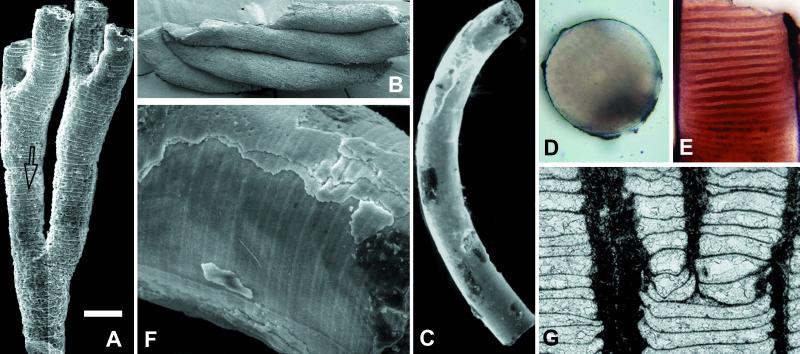Figure 3.
Sinocyclocyclicus guizhouensis, tabulate fossils interpreted as possible stem cnidarians. (A) SEM of branched tube preserved as phosphatic internal molds of tube chambers; note branching pattern as well as wedge-shaped chamber formed where an incomplete and complete cross-wall meet (arrow). (B) SEM of four clustered tubes. (C) SEM of curved tube. (D and E) Cross and longitudinal sections through this specimen. (F) An enlarged SEM view of the surface, showing cross-walls, phosphatic laminae on the wall, and a longitudinal ridge on the concave side. (G) Saffordophyllum newcombae, an Ordovician tabulate showing bending and thickening of cross-walls where they meet side walls, as well as apical budding (reproduced with permission from Ref. 36); compare with Figs. 2E and 3A. (The scale bar in A represents 140 μm for A; 200 μm for B; 150 μm for C; 80 μm for D and E; 30 μm for F; and 1 mm for G.)

